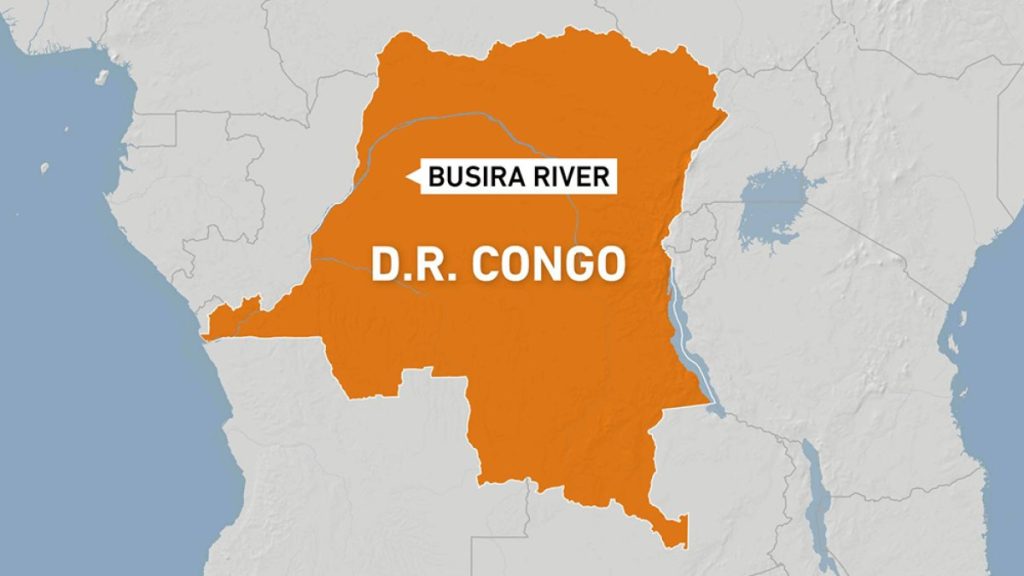The Democratic Republic of Congo (DRC) has once again been struck by a devastating maritime tragedy, as a passenger ferry capsized in the Busira River on Friday, claiming at least 38 lives and leaving more than 100 individuals unaccounted for. The ferry, part of a convoy navigating the river, was primarily carrying merchants returning home for the Christmas holiday. The incident occurred near Ingende, the last town along the river before the accident site. The scale of the catastrophe is feared to be significantly larger than initial reports suggest, with estimates indicating that the ferry may have been carrying over 400 passengers, having embarked from two ports, Ingende and Loolo, en route to Boende. This discrepancy in numbers underscores the chaotic nature of the immediate aftermath and the difficulty in accurately assessing the full extent of the losses. The remote location and limited communication infrastructure further complicate rescue efforts and information gathering.
The immediate response to the disaster has focused on search and rescue operations, with approximately 20 survivors having been pulled from the river so far. However, the vast number of missing persons paints a grim picture, and hopes of finding more survivors dwindle with each passing hour. While local authorities have confirmed the initial casualty figures, the central government has yet to release an official statement or provide further details regarding the ongoing rescue efforts. This delay in communication raises concerns about the coordination and effectiveness of the response, particularly given the remote and challenging terrain. Independent verification of the reported figures remains difficult due to the limited access to the affected area.
This latest tragedy is not an isolated incident, but rather part of a disturbing pattern of river accidents that plague the DRC. Overcrowding, inadequate safety measures, and a lack of proper regulation are often cited as contributing factors to these recurring disasters. Just days before the Busira River incident, another boat capsized in the northeast region of the country, resulting in the loss of 25 lives. This series of tragedies highlights the urgent need for improved safety protocols and stricter enforcement of existing regulations on Congolese waterways.
The recurring nature of these maritime disasters underscores the systemic issues inherent in the DRC’s river transport system. While Congolese officials have repeatedly warned against overloading vessels and promised to penalize those who flout safety regulations, these pronouncements have evidently not translated into effective action. In remote areas, where roads are often scarce or impassable, river transport remains the primary mode of travel for many communities. This reliance on waterways, coupled with the lack of affordable alternatives, creates a dangerous situation where passengers are often forced to board overcrowded and unsafe vessels.
The economic pressures and limited transportation options faced by the Congolese population contribute to the persistent problem of overloading. Many individuals, particularly merchants traveling with their goods, prioritize reaching their destinations over safety considerations, leading to dangerously overcrowded ferries. The lack of accessible and affordable alternatives leaves them with little choice but to risk their lives on these precarious vessels. This underscores the need for long-term solutions that address the underlying economic and infrastructural challenges that perpetuate this cycle of tragedy.
The frequency and severity of these boat accidents in the DRC demand urgent and comprehensive action. Beyond immediate rescue efforts, the government must prioritize implementing stricter safety regulations, improving oversight of river transport operations, and investing in alternative modes of transportation, particularly in remote areas. Addressing the root causes of overcrowding, such as the lack of affordable and safe alternatives, is crucial for preventing future tragedies. The international community also has a role to play in supporting the DRC in strengthening its maritime safety infrastructure and enhancing its capacity to respond effectively to such disasters. These efforts must be sustained and coordinated to ensure that the lives lost in these recurring tragedies are not in vain.

